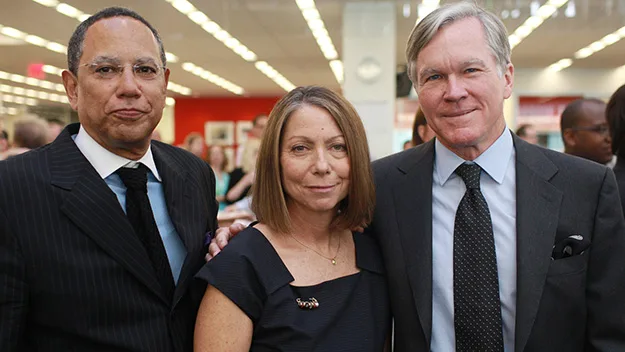The first female executive editor of The New York Times was fired only two and a half years into her contract for her “brusque management style”. Her sudden sacking unleashed a torrent of rumours and accusations around salary inequalities and sexism at the prestigious newspaper.
Now, Abramson has given her first interview since becoming the latest poster girl of double standards between the sexes.
Speaking to Cosmopolitan magazine in the US for its September 2014 edition, Abramson declared that she’s “not ashamed of getting fired.”
“Is it hard to say I was fired? No. I’ve said it about 20 times, and it’s not. I was in fact insistent that that be publicly clear because I was not ashamed of that.”

The interview traverses staple issues for working women.
On the vexed subject of women’s management styles, Abramson said:
“What [New York Times publisher] Arthur Sulzberger Jr. has said publicly is that he had problems with my management style. The whole issue of how women’s management styles are viewed is an incredibly interesting subject … If there is a silver lining, it was the giant reaction from other women journalists. These women editors at The Chicago Tribune, who I have never met, sent me flowers after that article.”
On sexism, she said:
“I remember being in story sessions, and so many times, I would have an idea and I would talk about it. Then the convener of the meeting would say, “And as Jerry was just saying …” and they would remember the idea as coming from a male colleague.”
Managing editor Dean Baquet, executive editor Jill Abramson and outgoing executive Bill Keller.

Managing editor Dean Baquet, executive editor Jill Abramson and outgoing executive Bill Keller.
Managing editor Dean Baquet, executive editor Jill Abramson and outgoing executive Bill Keller.
On equal pay, she said:
“My advice on getting a raise is what everybody’s advice is: to become a confident negotiator, but that is so hard. My admiration for women who are good at that is unbridled … Men never chalk up their success to luck but women often do. In my experience, men more often than women brought up money and talked about it and pressed for what they wanted in terms of salary before they agreed to be promoted.”



